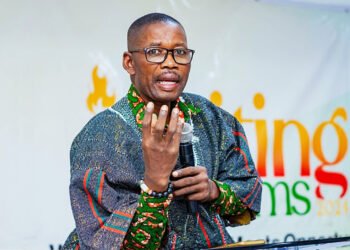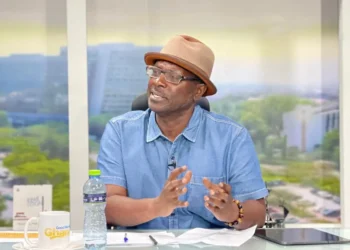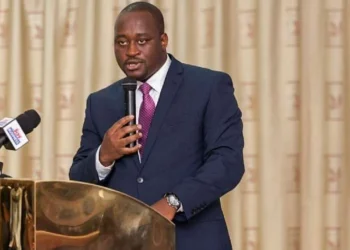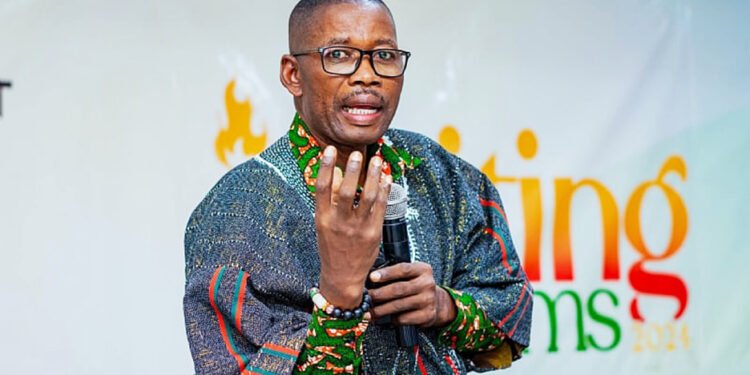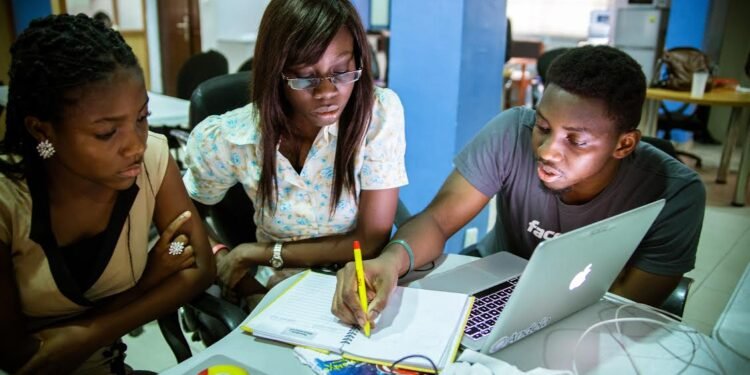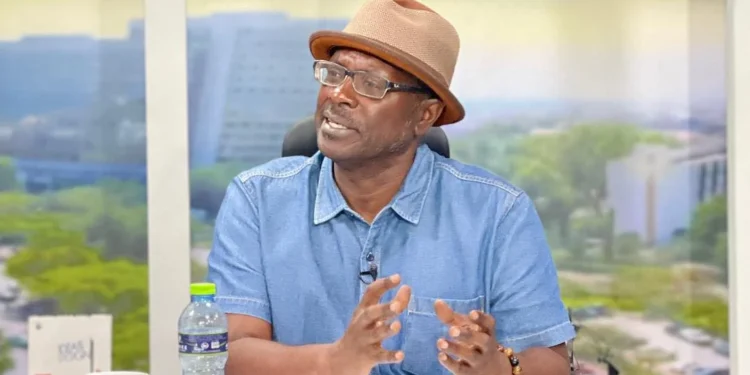As the world grapples with the consequences of climate change, it has become increasingly clear that a collective effort is required to mitigate its impact. Developed countries, with their historical emissions and greater resources, have a moral and practical duty to support developing nations in reducing greenhouse gas emissions.
Addressing a panel session on Funding Resilience: Post-COP28 Path Forward for Loss and Damage, Energy Minister, Dr. Matthew Opoku Prempeh has urged developed countries to support developing countries meet their net-zero targets.
“It is not about the number of funds we establish, but it is about the commitment to these funds in terms of supporting developing countries, fewer emitters. This will ensure that we contribute our quota to the reduction of global GHG emissions, and more importantly, achieve decarbonization, energy access, security, and efficiency.”
Dr. Matthew Opoku Prempeh, Energy Minister
Dr. Prempeh said Developing countries face the challenge of achieving the SDG7 target of providing clean and affordable energy by 2030, due to the intense financial commitment required.
Most developing countries, he said heavily rely on wood fuel to meet their energy need and therefore argued that in the face of the global Energy Transition, this type of fuel, if not controlled will erode the little gains chalked these few years in the quest to combat climate change.
The Minister who is also the Member of Parliament for Manyia South said energy is the heartbeat of every economy, and it is important that Africa has enough of it to support its socio-economic development to enhance the welfare of the citizenry.
Dr. Opoku Prempeh stated, “Our right to develop our energy resources for the benefit of our people must therefore be respected and with no interference.”
“We recognize that the electricity, cooking, and transportation sectors are key to reducing greenhouse (GHG) gas emissions. Consequently, steps must be taken to transition these sectors towards a net-zero emissions future.”
Dr. Matthew Opoku Prempeh, Energy Minister
He again emphasized that to attain this, developing countries must transition to the production and utilization of clean energy and implement measures to mitigate any emissions that occur in the process.
The Minister said he is also aggressively promoting clean cooking with a focus on achieving 50% access to the use of LPG as fuel and delivering 3 million improved efficient charcoal stoves by 2030.
The Manhyia South lawmaker used the opportunity to reiterate Ghana’s commitment to partner with investors to explore new energy frontiers to support sustainable, environmentally sound, and gender-responsive economic growth.
Ghana’s Efforts to Promote Cleaner Energy
The LPG for Development, Cylinder Recirculation Model, and Carbon-for-Free Stoves programs in Ghana align with the country’s efforts to support sustainable economic growth by promoting cleaner and more efficient energy sources, reducing reliance on traditional biomass fuels, and improving access to modern energy solutions.
These initiatives are part of Ghana’s broader strategy to address the challenges of energy access, affordability, and environmental impact associated with traditional energy sources like wood and charcoal.
“We have rolled out some programs, notably, the LPG for Development, Cylinder Recirculation Model, and Carbon-for-Free Stoves program for the biomass sector.”
Dr. Matthew Opoku Prempeh, Energy Minister
The LPG for Development program aims to expand the use of Liquefied Petroleum Gas (LPG) as a domestic energy source, replacing wood fuel and charcoal. By promoting LPG, Ghana seeks to reduce deforestation, which is a significant driver of greenhouse gas emissions and a major challenge for sustainable economic growth. The program also targets health and environmental benefits, such as reducing the risk of accidents associated with the use of traditional biomass fuels.
Additionally, the Cylinder Recirculation Model (CRM) is a policy initiative designed by the government of Ghana to ensure that at least 50% of Ghanaians have access to safe, clean, and environmentally friendly LPG by 2030.
This model involves consumers purchasing already filled cylinders at designated LPG selling points, with an advance payment for an initial cylinder and subsequent payments for LPG. The CRM aims to enhance safety, increase access and adoption of LPG, and ensure the existence of robust and standard health, safety, and environmental practices in the production, marketing, and consumption of LPG.
This initiative is part of Ghana’s efforts to develop a market-driven structure that supports sustainable economic growth by reducing reliance on traditional biomass fuels.
This call for action by Dr. Prempeh aligns with the broader international efforts to address climate change, including the establishment of the loss and damage fund at COP28, which aims to compensate vulnerable countries for the impacts of climate change.
The fund, which has received pledges from developed countries, is seen as a critical tool for delivering climate justice and supporting the most affected nations in their recovery and adaptation efforts.
READ ALSO: GBC Found Guilty of Copyright Infringement





